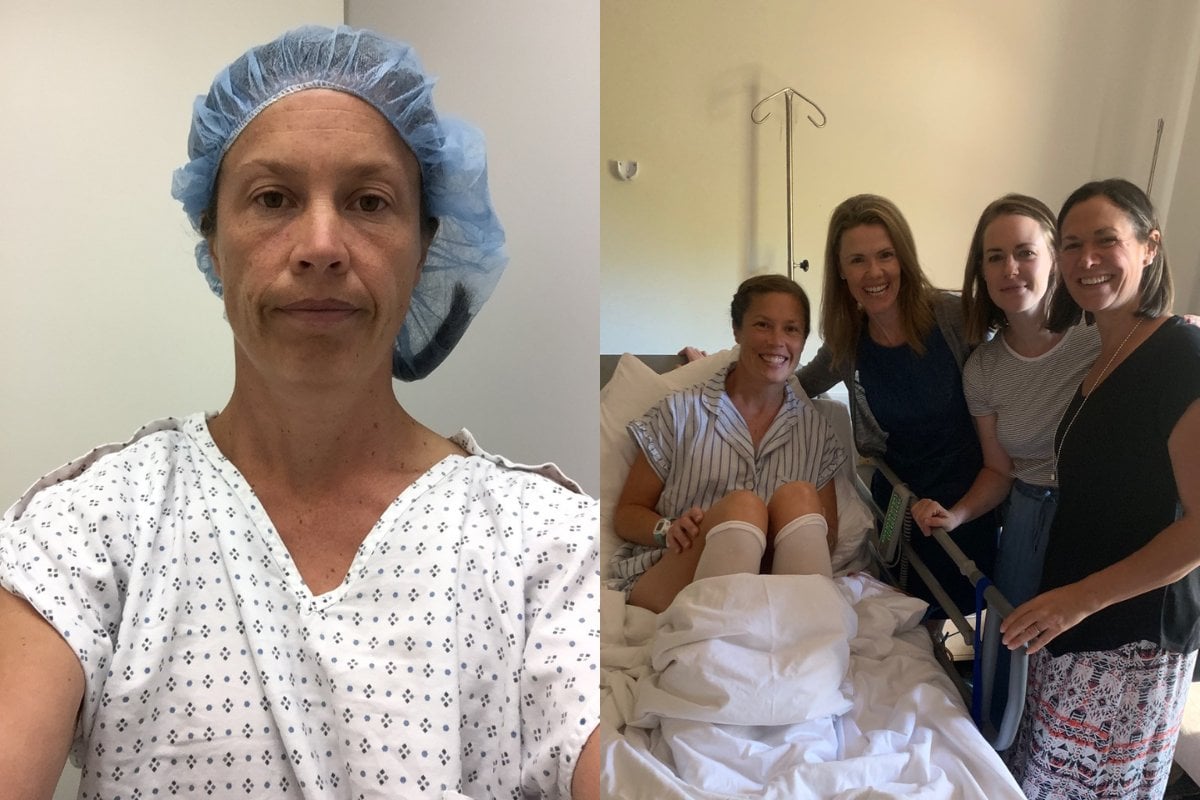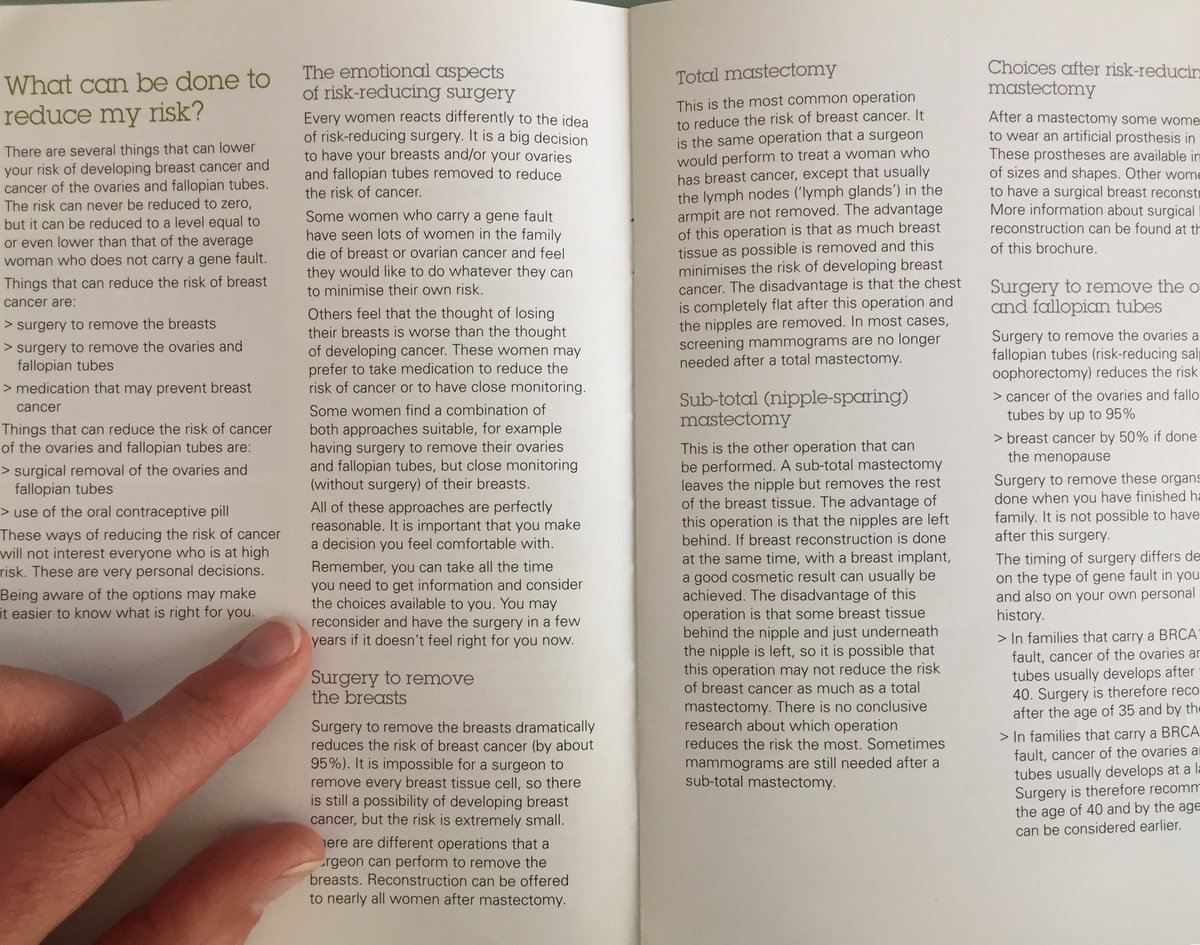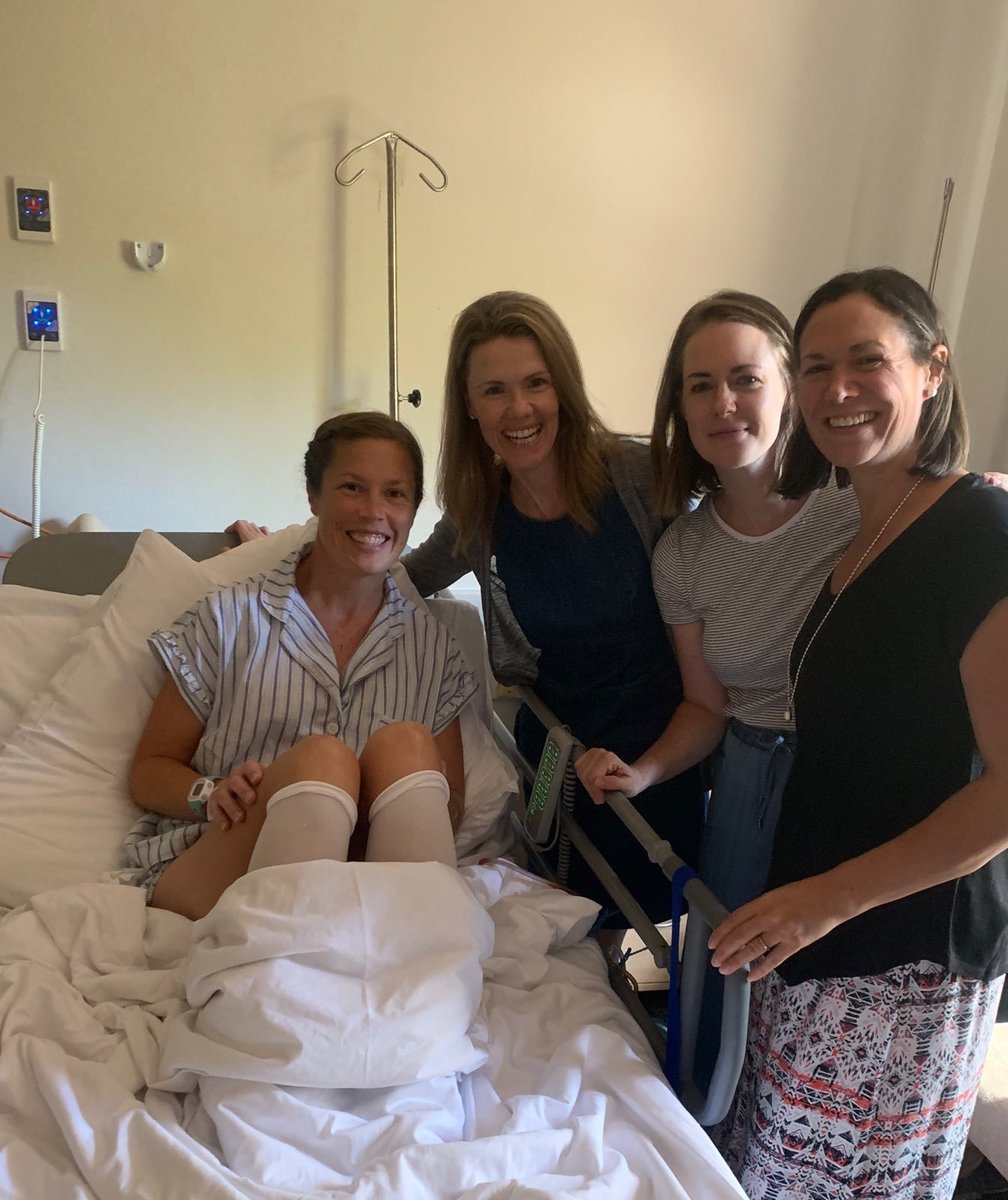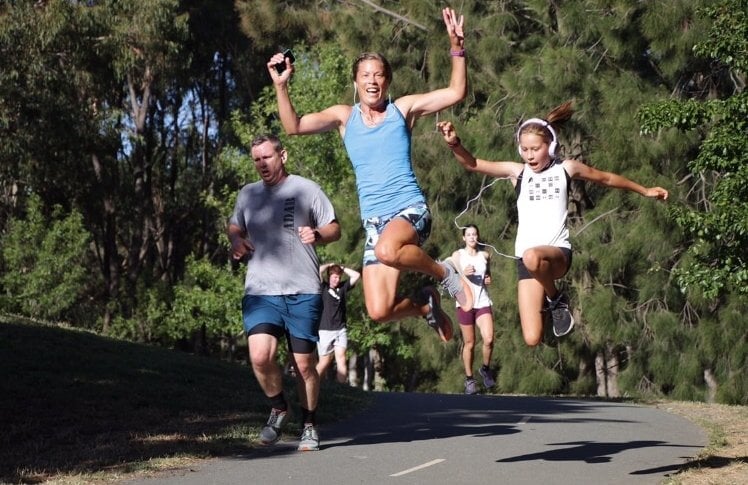
"We’ll remove them, and we’ll remove those when you’re done with them," said the surgeon as he casually pointed to my ovaries and my breasts (I was breastfeeding my baby at the time).
To the surgeon, it was a black and white decision, but as the patient, all I saw was grey.
I carry a BRCA gene mutation (sadly my only resemblance to Angelina Jolie) so in 2017, I had my fallopian tubes and one ovary removed, and then in 2019 I had a risk reducing double mastectomy.
This BRCA gene mutation puts me at high risk of developing cancer, and I join many other women (and men) in the same position in this ‘high-risk for cancer’ community.
While you're here, watch a quick video on how to check your breasts. Post continues after video.
I had the surgeries that many health professionals advised me to have so that I could avoid developing cancer like several of the women in my family before me. Deciding to have those surgeries were the hardest decisions of my life.
Imagine being told you had a 66 per cent chance of winning on a horse. Would you bet on it? I would, take my money!





Top Comments